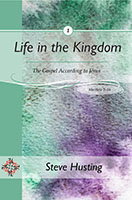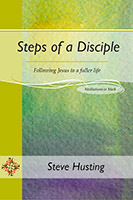Matthew 7:1-2 Judge not, that you be not judged. For with what judgment you judge, you will be judged; and with the measure you use, it will be measured back to you.
This judging refers to condemning someone, not judging whether something is right or wrong. Later in the chapter Jesus will tell us to know the difference between true and false prophets. So we are still to judge or discern among things good and bad. Jesus seems to have in mind here people picking on each others flaws, criticizing them harshly.
As Jesus said, the standards by which we judge others will be the standards people use to judge us. These words are true on a human level and a God level. I remember telling a woman her fault and she replied, “Oh yeah, what about you?” And so the measure we use is measured right back to us. We know very well that if we are not walking the talk when we are pointing out another person’s flaws, we open ourselves to ridicule. “Why are you blaming me? You do the same thing!” We are then revealed as hypocrites for knowing the standard and not living up to it. If we can’t, why are we imposing it on others?
But this works on a God level as well. The standard by which we condemn others will be used against us when we are judged by God. Jesus gives us several examples of this. One example is found in Matt. 18:21-35. There, Peter asks Jesus how many times he needs to forgive a brother, “seven times?” Jesus answered, “seventy times seven times.” Then He illustrates with a story of a king’s slave who was so deep in debt that the king was going to sell him and his family and possessions. The slave begged for patience, and the king forgave him all. This slave then went to slave #2 and demanded payment for what he owed. Slave #2 begged him to have patience. Slave #1 refused and had him thrown into prison.
The king heard what happened and had the forgiven slave brought to him. He told him that he should have forgiven slave #2 because he himself was forgiven by the king. So the king did for that slave what he did for slave #2 and tossed him into prison. Then Jesus points out the moral of the story: “So My heavenly Father also will do to you if each of you, from his heart, does not forgive his brother his trespasses.”
These words were spoken to Jesus’ disciples in response to Peter’s question. So this warning applies to the child of God. Having a choice to not forgive or show mercy, which will do us better in the long run?
God showed us mercy in forgiving us all of our trespasses and expects us to extend that graciousness to others. Earlier in the beatitudes we read, “Blessed are the merciful, for they shall obtain mercy” (Matt. 5:7). Again, this works on both levels, human and divine. If we show mercy to those who have wronged us, it may soften their hearts to forgive us in return. So Jesus tells us not to condemn. Mercy triumphs over judgment, James 2:13 says. We are saved, but we will still go before Christ for rewards and receive them or be denied them. Don’t give Him reason to withhold! I have no idea what would happen to the unmerciful, judgmental Christian at the judgment seat of Christ. One book I read says that the judgment of the Christians happens before the 1000-year reign, and their punishment is being kept from enjoying that time on earth, then are released after that. I don’t know if this is true, but I know judgment will be just.
We know, by a bad conscience now and then, and by comparing ourselves to the measure of Jesus and the scriptures, that we have done wrong things. Some people have condemned us, and perhaps we wish the judging brother had known our circumstances, then he would have been more understanding. This is the right way to address disagreeable people, for they are not all that different from us. We know that people are complicated. We are all fallen. We don’t know what they are going through, who have these marks that we criticize them about. We don’t know what happened to make them do those things to us and others. But we are fallen enough to know our own weaknesses. Of course, we do not condone any bad things they do or say. We are to just not condemn them. They are expressing their fallen nature. God desires to win them to Himself; let’s not be His representatives who drive them away. (Of course, bad and illegal crimes are handled by the authorities. That will be God’s applied judgment in this life.)
Matthew 7:3 And why do you look at the speck in your brother’s eye, but do not consider the plank in your own eye?
Well, that’s a really good question. Why do we see the faults of others better than we recognize our own? Jesus asks a lot of questions of us in the gospels. Pay close attention whenever He does this and ponder carefully how you would answer it. Who knows what kinds of revelations you will receive from these hints. I know a verse that lays the groundwork for answering this question: “The heart is deceitful above all else, and desperately wicked” (Jer. 17:9). Sin is at the root in some way.
Matthew 7:4-5 Or how can you say to your brother, ‘Let me remove the speck from your eye’; and look, a plank is in your own eye? Hypocrite! First remove the plank from your own eye, and then you will see clearly to remove the speck from your brother’s eye.
When we criticize someone harshly, this shows that we have a bigger problem than that person does. So how do you know that the plank has finally been removed from your own eye? When you have compassion on the person you correct. I have been judgmental from the position of superiority, being snide, rude, harsh, or dismissive. If I have no love, then I have a bigger problem to deal with. When I approach a person in love, the plank has been removed. So instead of being judgmental and hypocritical, I say, “I have the same issue that you’re going through. I’ve been there. This is how Jesus helped me through it.” Now you are identifying with a fallen member of the human race. Your aim is to lift him up and not squash him flat. And he will know it by your attitude, choice of words, and tone of voice.
And so we must see fallen humanity the way Jesus did when He was here. He was the only sane man in an insane world. He was the only person on earth possessing a loving relationship with the Father. He saw lost sheep everywhere, had compassion on them, and wanted to minister to them. He didn’t do what we’ve done, shaking our heads at someone and saying dismissively, “Well, what do you expect?” We look at humanity with new eyes, understanding that we are all in it together, slaves of sin, taken captive by the devil, and we all have the same chance to escape through Jesus.
See the people around you here in new ways. Our minds have been disabled by sin, circumstances, and frustration. “God is far away; He has forgotten me. I have to do the best I can, and I can’t seem to get my act together. Everything seems out of reach and beyond my ability. Everything is pointless.” Into this world Jesus came, and people flocked to hear Him. He gave them hope. There is grace for the sinner. God will hear, God will help. If we are deaf to this, we will be the deaf helping the deaf, with both falling into a ditch.
Matthew 7:6 Do not give what is holy to the dogs; nor cast your pearls before swine, lest they trample them under their feet, and turn and tear you in pieces.
I used to think this meant that we were not to share our more precious gleanings from the word to the unsaved, thinking, “They wouldn’t appreciate it anyway.” But I get a different meaning when I link this verse to the verses before it with regards to sharing your helpful advice about the other person’s fault. I now take this verse as saying we still need to have wisdom regarding whom we help. Jesus is telling us here that some will reject our pearls of wisdom. Will a biker gang member take kindly to your helpful advice? Will that surly teenager accept your wisdom? Consider carefully who you give advice to and under what circumstances. Some people will not be receptive to people pointing out the splinter in their eye. They may react with physical or verbal abuse. Recognize the dogs and swine and be safe. Give your wisdom to those who are ready to receive it.
Summary
So don’t condemn others lest you be judged the same way. But if you do judge, make sure you can do it with compassion, identifying with a fallen sinner. Allow the Holy Spirit to deal with the planks in your eye; admit them and pray about them. This life is all about removing planks so we can serve as Jesus did. Every eye’s plank acknowledged and removed is another board God can use to build up something beautiful in us.






